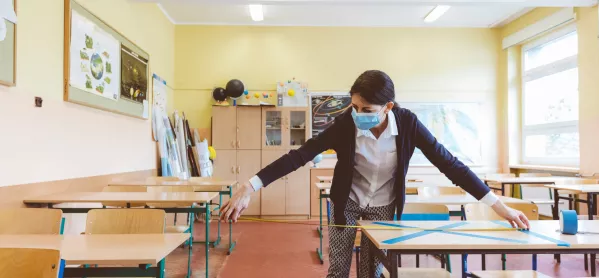Extra funding to cover staff absence costs during the coronavirus pandemic will “not fully address the severe financial pressures on schools”, headteachers have warned.
The extra funding announced by the Department for Education today will be “short-term” funding available to schools if they have used a set amount of their cash reserves and hit a government threshold for the number of teachers who are off work.
Geoff Barton, general secretary of the Association of School and College Leaders, said the funding only covered staffing cover in the current half-term, and did not take account of the fact that schools and colleges have been “plugging staffing gaps” since reopening in September.
Coronavirus: Thousands demand funding for school Covid-19 costs
Funding: ‘Disappointing’ lack of new catch-up funding
Read: Catch-up funds not for PPE or supply staff, DfE told
He also said the fund did not address the “enormous costs” involved in implementing and managing Covid safety measures.
Coronavirus: Funding ‘won’t fully address financial pressure on schools’
“While we welcome this additional funding, it comes with many caveats and will not fully address the severe financial pressure on schools and colleges caused by the Covid pandemic,” Mr Barton said.
“We are pleased that the government has listened to our concerns, albeit that it has only partially met our request for extra financial support. We will continue to press for full reimbursement.”
According to the rules set out by the DfE today for the Covid workforce fund, schools and colleges must be experiencing either a short-term teacher absence rate of 20 per cent or more, or a long term teacher absence rate of 10 per cent or more to be able to apply for the extra funding.
Paul Whiteman, general secretary of the NAHT heads’ union, said: “We would like to see the government go further, and our continuing discussions with them will focus on this in the coming weeks.”
But he added: “Here is a glimmer of hope for some schools. The government has finally responded to the clear pressure that school leaders have been facing and provided some financial assistance for the spiralling costs of covid.”




